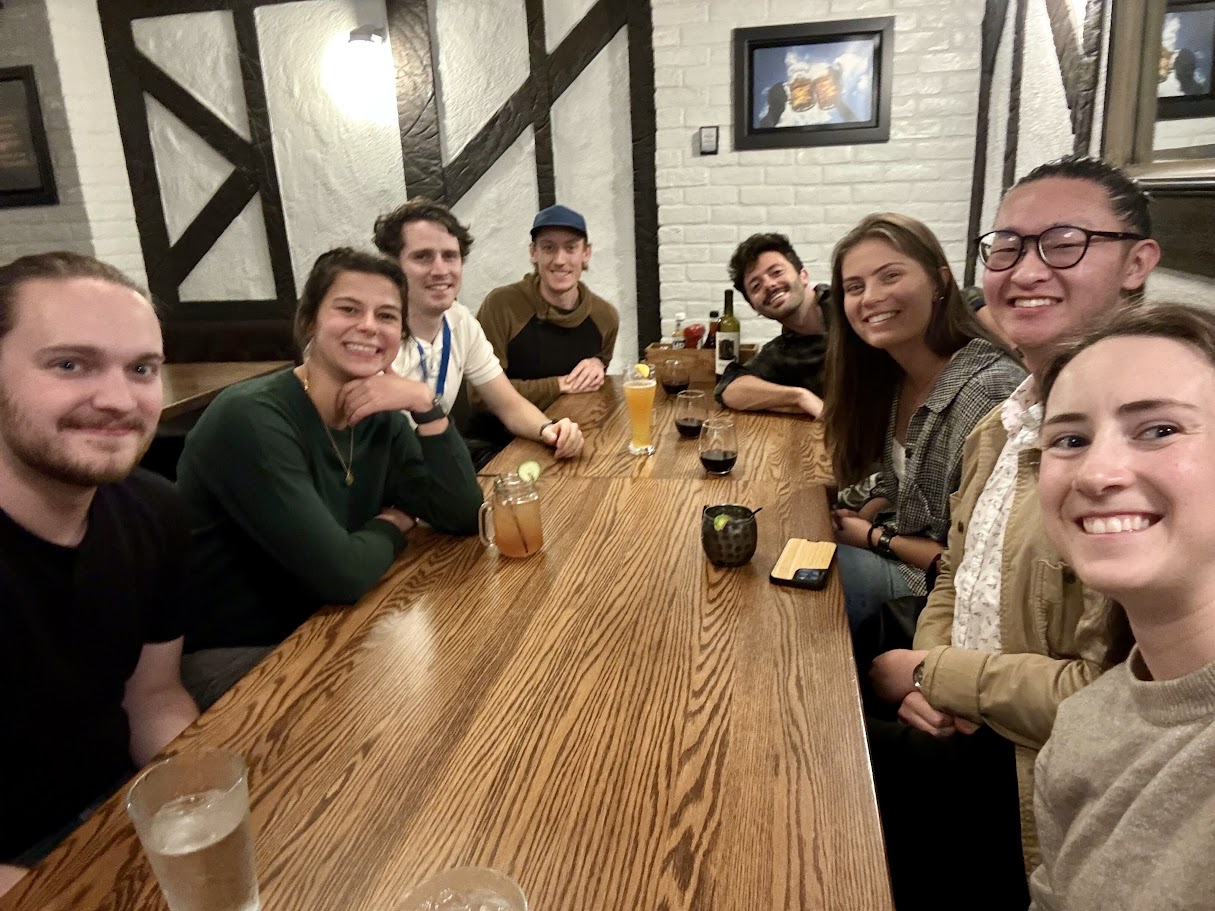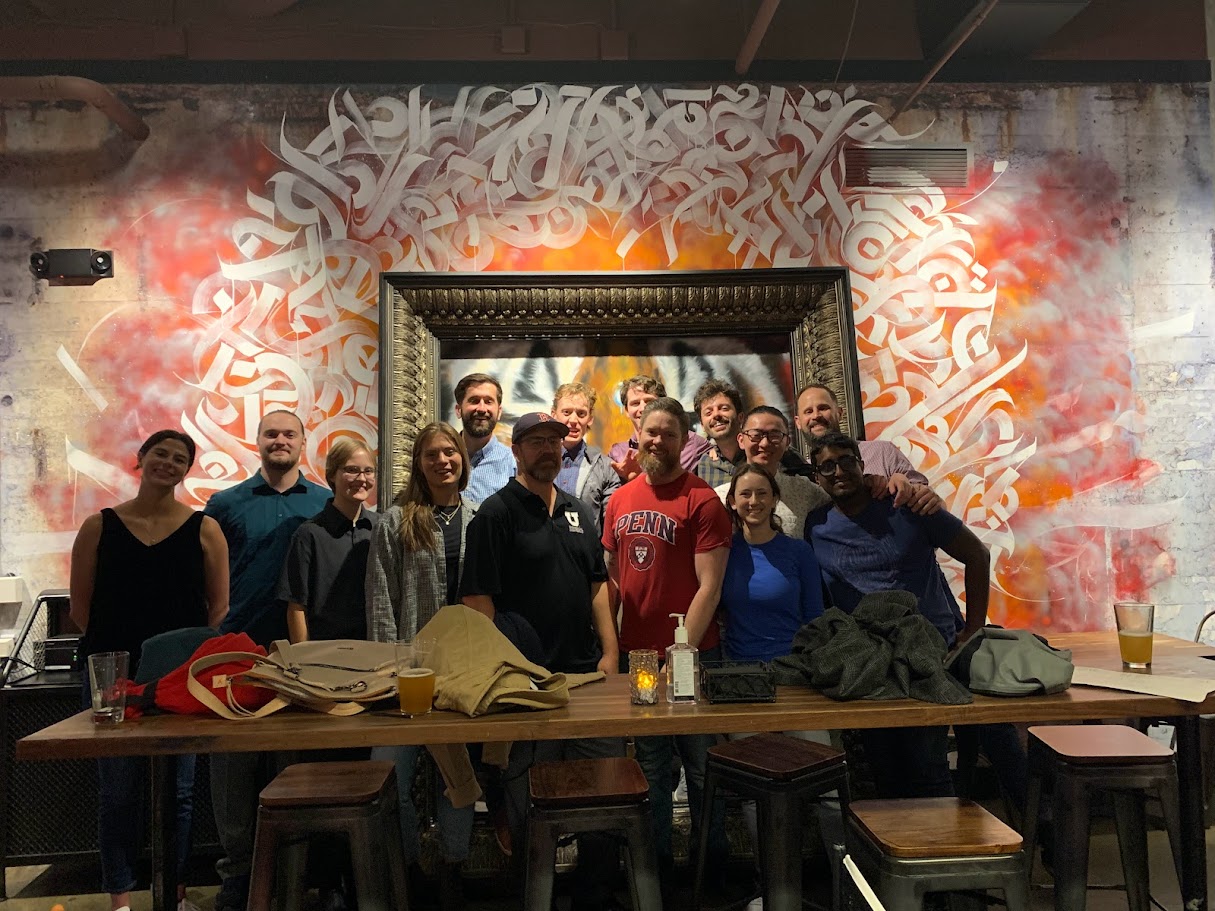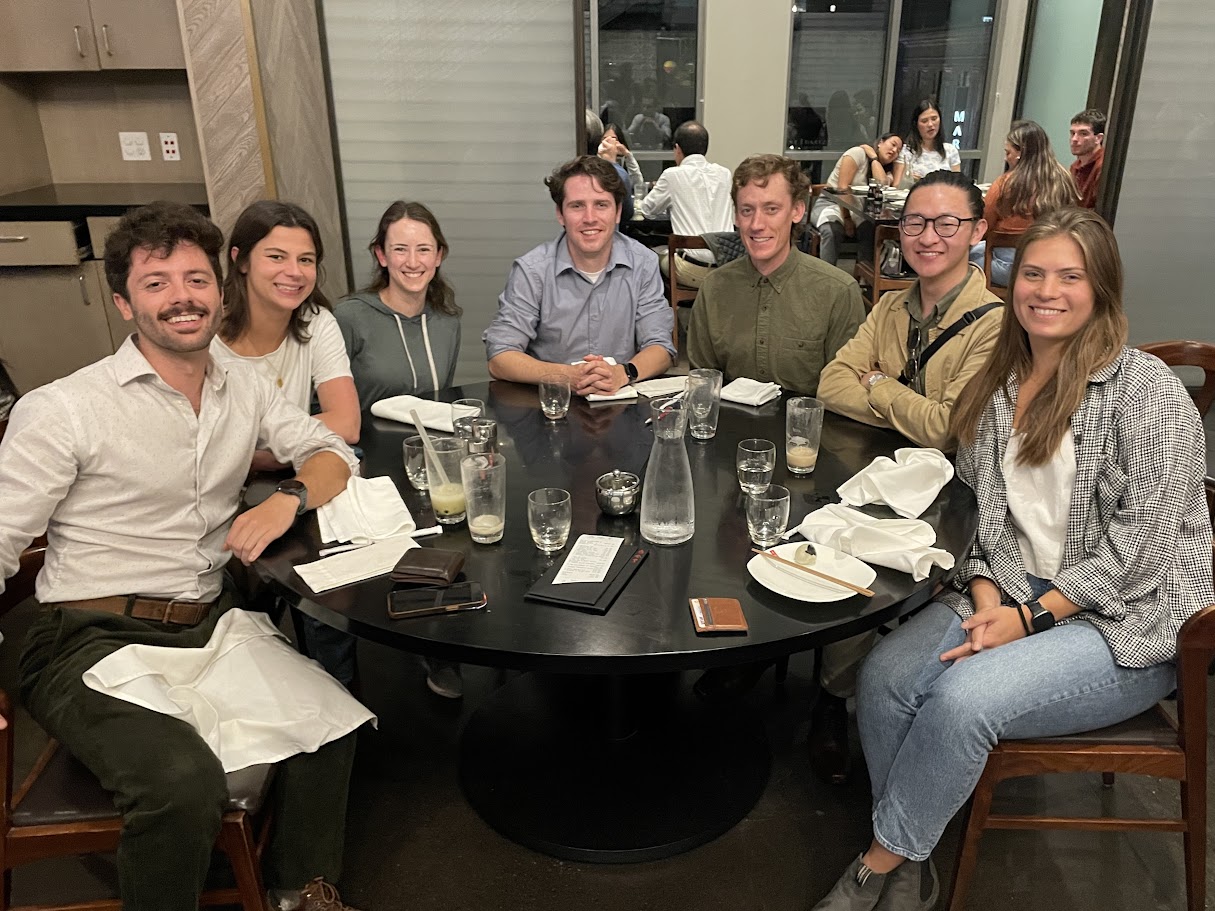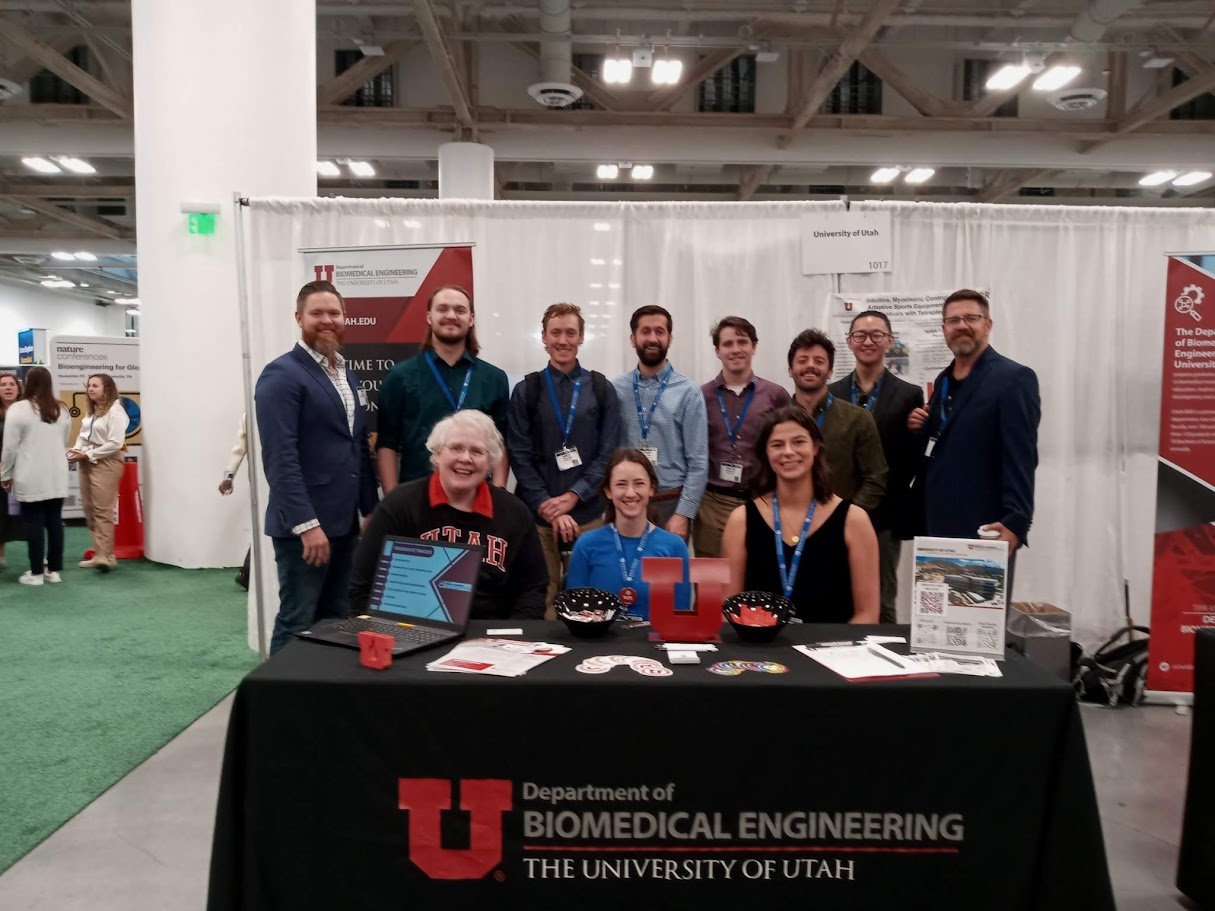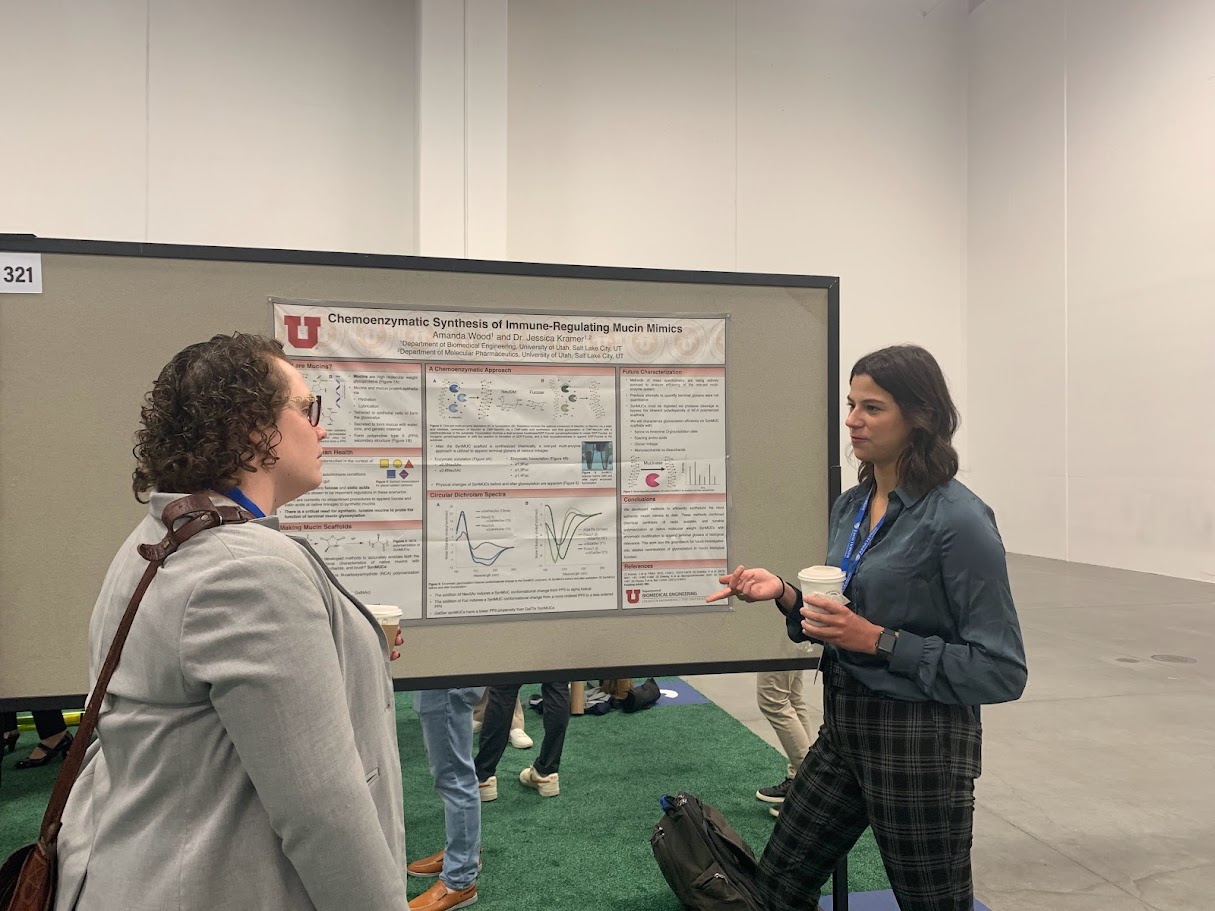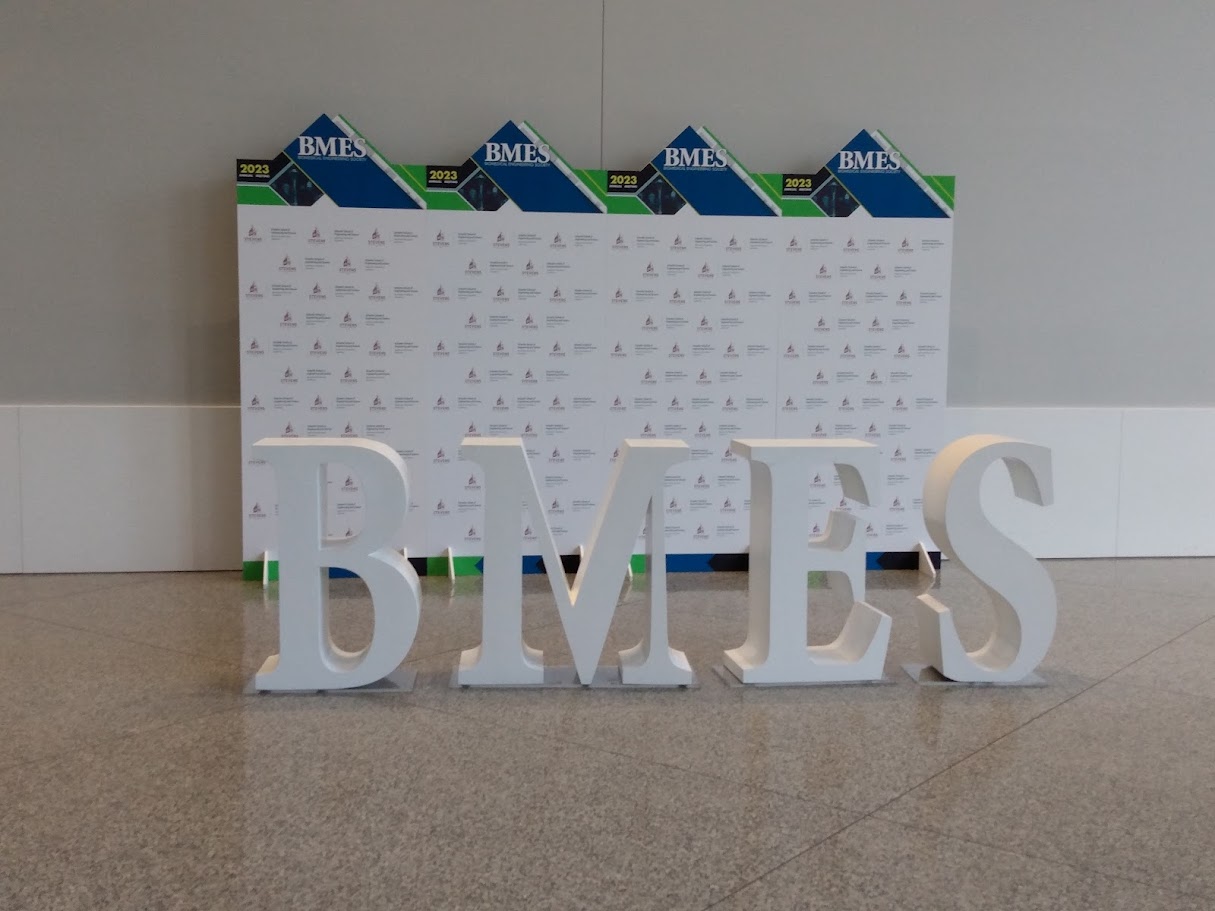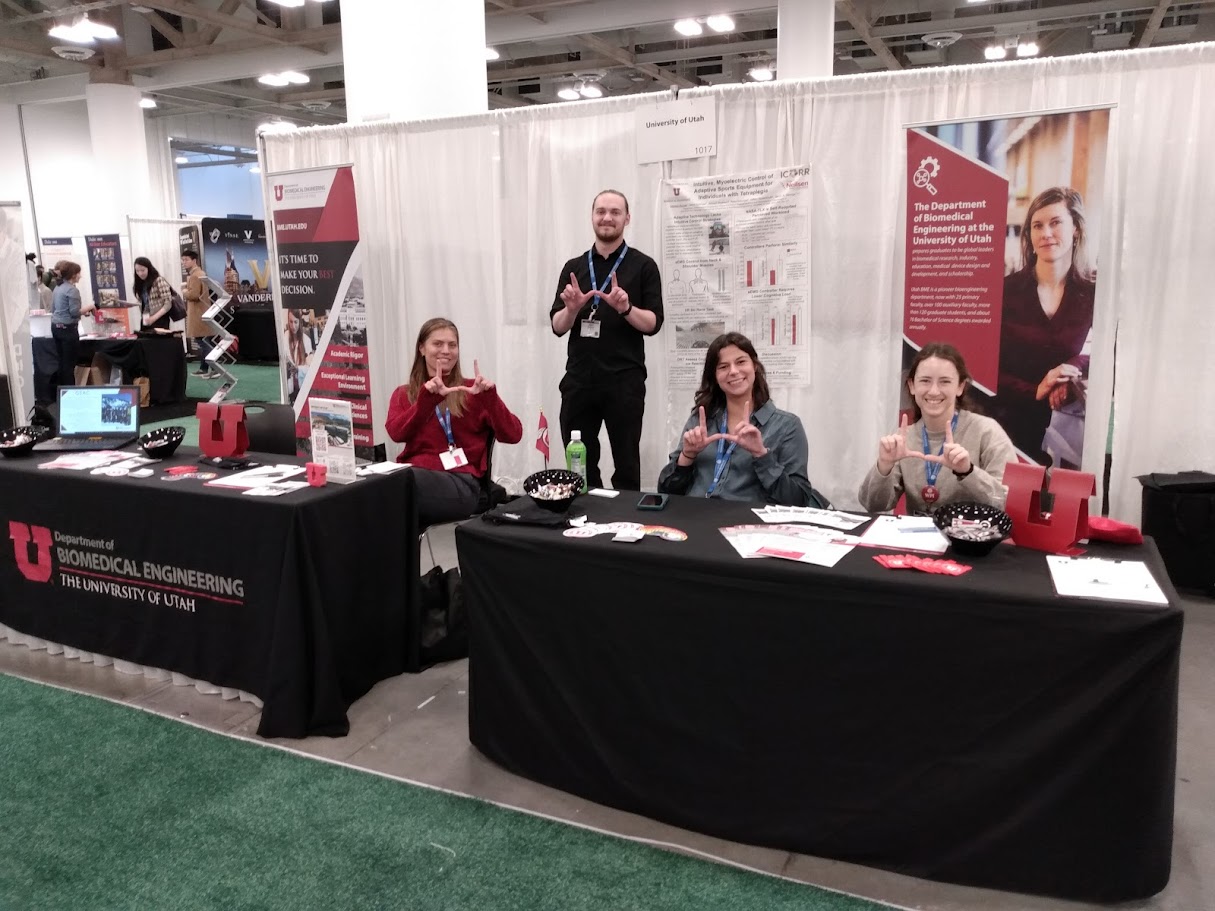From October 11th – 14th, 2023, a group of Utah BME students attended the Biomedical Engineering Society (BMES) Conference that took place in beautiful Seattle, WA. This conference is held annually in the Fall. This event was attended by select Graduate Students, Faculty, and Staff as representatives of the University, the Biomedical Engineering Department, their labs, and their respective works.
According to their website, BMES was established in 1968 as the professional Society for students, faculty, researchers, and industry professionals in biomedical engineering. Their mission is to promote a collaborative and inclusive community to advance human health through education, discovery, and translation — drives our research and educational initiatives, including webinars, chapter programs, and meetings. There are more than 6,800 members who share a vision of health and wellness for all through engineering innovation and a steadfast commitment to diversity, equity, and inclusion.
BMES holds an annual meeting where they have hosted up to 5,500 biomedical engineers who attend more than 2,500 scientific presentations on cancer treatment, heart disease, women’s health, global health disparities, and more. The meeting allows members to advocate for their innovative solutions, demonstrating their commitment to the Society’s core value of health equity for all individuals. In addition, BMES shares scientific information to inspire the up-and-coming generation through four scientific journals, three special interest groups, and collaboration with other scientific societies to elevate the visibility and significant impact that the biomedical engineering community has worldwide as the thought leaders behind the future of human health.
When asked, Amanda Wood, a Ph.D. student in Jessica Kramer’s Lab and co-president of Graduate Women in Biomedical Engineering (GWBE), what she experienced at the conference she had this to say:
“Attending BMES this year was a wonderful opportunity to see what science is being conducted around the country. I was able to present my work with a poster and spoke to many genuinely interested scientists during this session. I was able to attend many oral presentations, and it is always very fun to see researchers get excited about their work. This conference also focused on EDI efforts in academia, from gender and race inclusivity to LGBTQIA+ representation. I chose to attend BMES this year to attend sessions focused on EDI efforts as well as to speak with like-minded activists at other universities to see how we can improve life for students on our campus. I appreciated the efforts the conference went to set up events and spaces for researchers to speak with each other, whether that be about research, future collaborations, or just visiting beautiful Seattle. My favorite academic part of this conference was speaking with a student at their poster who also studied mucin biology. It was very cool to come to such a large conference and to still see people working in my niche field of research, reinforcing its importance to human health.
Myself and other students from the U also hosted a recruitment table during the conference as well, speaking with anyone from high schoolers to post-docs looking for jobs. This was a great opportunity to showcase the U and to brag about the awesome research we conduct here in Salt Lake City. Given the opportunity, I would definitely attend again. “
Matthew Trone and Hunter Levis are both Ph.D. students in Robby Bowles’ lab. They agreed that BMES is a great opportunity for growth and learning, and worth attending. They jointly stated the following:
“BMES is the leading society for biomedical and bioengineers, where we can promote research and educational initiatives, collaboration, and EDI. With biomedical engineering being such a broad field, it can be difficult to stay up-to-date on research throughout the discipline, but BMES is a great opportunity to hear about research going on in many parts of the field. Presenting at BMES is also a great opportunity to receive feedback and perspectives from colleagues that you would not receive otherwise. Being a graduate student can sometimes feel isolating since you are usually in the lab working on your own projects; my favorite part of BMES is that there are many informal opportunities to interact with faculty and other graduate students, being able to expand your network and make friends within the department and at other institutions.
I think, as a whole, BMES is a great opportunity for undergraduate students who are interested in graduate school to get experience presenting their research and interacting with prospective graduate schools and potential advisors. The main exhibit hall is full of booths for graduate schools throughout the country, and it is a great way to interact with current students and faculty at prospective schools, whether looking for a graduate school, post-doc, or faculty position.”
Among many other attendees from the University of Utah, was Rui Jin, a BME Ph.D. Student. He was very excited to take part in the conference and found much value in it. He expressed the following:
“I really appreciate this year’s BMES conference! I was able to expand my understanding of the biomedical engineering field, meet other researchers from a variety of tracks, and learn about novel research projects and advancements. My favorite event was actually the poster presentations, as it provided me with a great opportunity to learn about different disciplines in biomedical engineering and a variety of novel projects. I also find it interesting to learn about how the researchers were able to solve their individual research problems, which gives me good insights on how to improve my own research skills. I also appreciate the opportunity for me to practice research presentation and improve my communication skills.”
The next BMES Conference will be held in Baltimore, Maryland on October 23-26, 2024 where Utah BME students will once again shine and pursue their passions.

